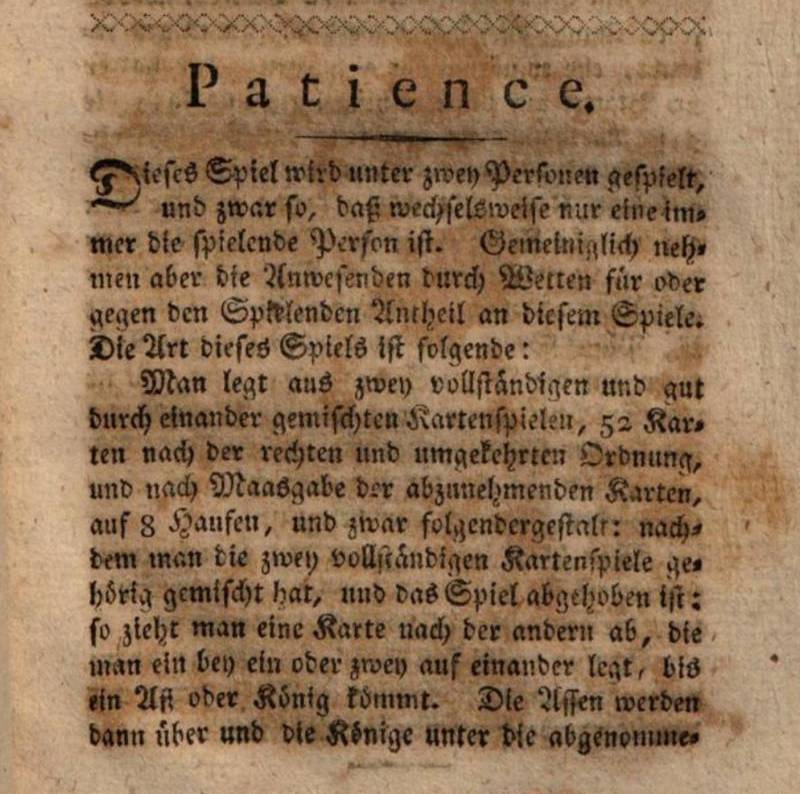Solitaire as we know it today, is the name given in America, to the historical game of Patience. In the UK and most of her former colonies, the game is still known as Patience. The Solitaire name appears to have arisen some time in the first half of the 19th century.
John Clayton - U.S. Senator from Delaware - used the name Solitaire to describe the game during the first session of the thirtieth congress of the U.S. Senate in 1848.
The earliest full description of the game is from 1788
The earliest book with a full description of the game, is the German book Das Neue Königliche l’Hombre, from 1788. The game described in the book bears the name Patience, and is most definitely a solitaire-like game. It is worth noting that the game is absent from the prior edition of the same book, which was published in 1783, suggesting that in Germany at least, the game had only recently risen to prominence.

The 1788 German book Das Neue Königliche l’Hombre details the game of Patience
The game is also mentioned by name in an English publication in 1793. Although no description is given, it is clear that it is a game played alone:
Having taken up a pack of cards I had begun the game of Patience, to which I have often had recourse on these occasions;
Letter to The Country Spectator, Gainsborough, England, 19 February 1793
Fortune-telling patience may have been “played” earlier
Most sources agree that the game of Patience (Solitaire) evolved from, or in parallel with, a fortune-telling version of the same game. In this version, the flow of the cards, and the successful or unsuccessful outcome of the game was used to foretell events.
Numerous 19th century texts describe the game being played in this way, including one that makes clear that Napoleon Bonaparte’s wife was a keen user of the game to predict future events:
On hearing the history of the pineapple, she predicted to me, “You will have a daughter;” and in support of her opinion proposed a game of patience
Memoirs of Napoleon, His Court and Family, Volume 1, by Laure Junot Abrantès (duchesse d’), 1836
David Parlett postulates that given that card layouts for cartomancy (fortune-telling) were not “reliably reported before about 1765”, if fortune telling was indeed the origin of the game, then this puts a floor on date of its inception.
Considering this, along with the early German and English references, we can conclude with some degree of confidence that the game likely emerged in the second half of the 18th century.
Further reading
You can find the detailed history of Solitaire and Patience in our “What is the history of Solitaire” article.
